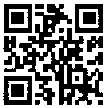My final (a sigh of relief for both me and you I imagine) report of the series of IIEEC Teacher Training Workshops I attended, entitled "Using Activities Effectively" and presented by Miki Sakai. I have learned a great deal from attending these workshops as well as mulling over my experiences and writing them down in the form of these reports. I intend to continue to progress and develop as an English teacher, applying all that I have learnt during these workshops as well as taking some well needed self reflection time every step of the way. Enjoy my final rant and as always any feedback is appreciated.
 |
| Leaning activity: complete the alphabet |
As teachers, using our time in the classroom efficiently is crucial. In most cases we are limited to 45 to 60 minutes (or even less!) of contact time a week with our students, further emphasising the importance of putting effective teaching methods into place. In this workshop we were taught the importance of implementing “learning activities” and effective review activities, as well as using the students’ mistakes as a way of highlighting the weaknesses in your teaching methods.
First on the agenda was differentiating between the use of games and “learning activities” in the classroom. Learning activity can be another name for a game but in this instance they are implemented with a specific purpose; either reinforcing vocabulary, correcting pronunciation or providing context to what you are teaching etc. Games tend to be more orientated about having fun and not necessarily practising for fluency (even though you can adapt almost any game in order to suit your students’ needs or build on the main focus of your lessons).
 |
| Reviewing numbers by matching |
Learning activities should be short and repeated many times. I know from experience that some games can seem to go on for an eternity, with minimal speaking time for the students. A short activity that is repeated many times is going to be much more effective than a long drawn out game. It’s important to consider when planning and introducing learning activities that you yourself are familiar with the activity. How are the students expected to know what to do if the teacher is stumbling over their words? On top of that, always, always, always demonstrate the activity rather than attempting to explain it in detail. You are wasting your time! Students will learn much more quickly from doing rather than listening. Also don’t forget to revert back to the 6-second MAT drills if the students are struggling, (this was drummed into our heads continuously throughout all the workshops) or are in need of straightening out the kinks in their pronunciation. And if all else fails, abandon ship immediately and resort to “plan B” or move onto the next activity.
 |
| Something's a little off... |
The next thing to consider; student’s mistakes. We must acknowledge that mistakes are unavoidable. We should expect our students to make mistakes and in turn learn from them through trial and error. Although mistakes (especially repeated mistakes) may become frustrating at times, avoid blaming the students, instead reflect on your approach to teaching them. Student’s mistakes can be used as a tool to analyze aspects of your teaching that need developing, perhaps the way you introduce the language is not clear enough, maybe your learning activities are not up to scratch, or your students’ concentration levels are dropping due to the lack of engaging classroom tasks. Try changing your teaching style to see whether you evoke a different response from your students.
The final area to consider during this workshop was effective review activities. Review is hugely important, especially when it comes to younger students as they have a knack for forgetting things quickly. The easy part is getting information stored into short term memory, but difficulties arise when embedding new information into long term memory. This is why we must review EVERY LESSON. No exceptions. This does not only mean reviewing what was covered in the previous lesson, but reviewing everything covered from lesson one, book one. In order to do this effectively, we must be creative in our review activities by combining as much of the previous language as possible. Otherwise your hands will fall off from attempting to review previous vocabulary by cycling through flashcards. Another significant point to take away from this workshop was to alter the way you review something from how the students initially learnt it. This provides an alternative means of students to express themselves, whilst adding much needed diversity in your classroom
Since attending this workshop, I have been making more of an effort to include more learning activities during my lessons, even something simple as rolling a die to elicit vocabulary from the textbook or throwing a ball to each other in order to practise the question and answer form of a sentence. I have always made it a point to vary activities, as conveyed in this workshop it is important to differ how you review a topic to how you introduced it. This prevents lessons from stagnating by repeating activities over and over again as well as allowing students to use English in a different context.


No comments:
Post a Comment
By all means leave your comments - please do not be offensive, abusive, or rude. We ask you to sign your comment as well, please.